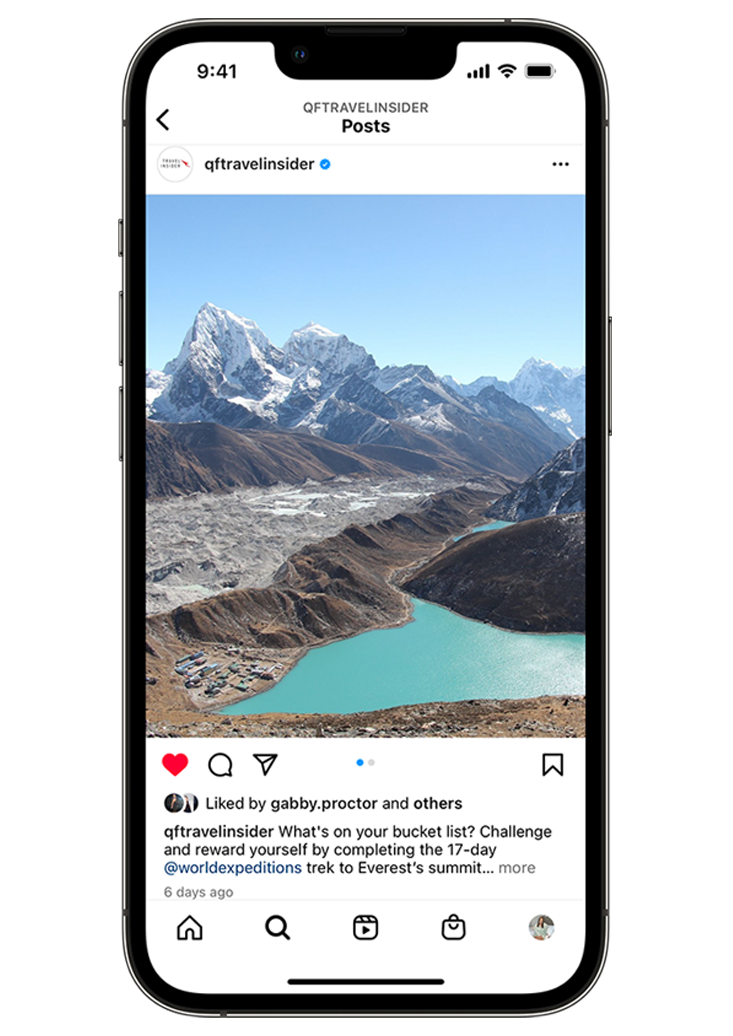Read Before You Leave – Bali

Bali hosts more than 1.5 million Australian travellers every year, from teens celebrating schoolies in Kuta to families soaking up Ubud’s tranquillity in secluded villas. Bali is what you make it – a lavish getaway, a journey into a fascinating culture, a wellness escape or one long pub crawl. Plan your next trip with our Read Before You Leave guide. From the visa to the weather and beyond, continue reading for everything you need to know before you go to Bali.
Flight time to Bali
Qantas and Jetstar fly direct to Bali. The flight takes about 6.5 hours from the east coast and about four hours from Perth.
Entering Indonesia

Australians require a tourist visa to enter Bali for periods of 30 days or less. Apply online for your e-Visa on Arrival (e-VOA) at least two days prior to your trip or when you arrive at specific airports, such as Jakarta, Bali, Surabaya, Lombok, Makassar, Manado, Batam, Medan, Yogyakarta or Tanjung Pinang. The fee is about A$50 per person, plus a small additional processing fee when applying online. Your passport must have at least six months validity for you to enter Bali. For all other types of visas, visit the Indonesian Directorate General of Immigration website.
Travellers are also now required to complete an electronic health declaration form called the SATUSEHAT Health Pass, which asks for details about your health and travel history. This can be completed before arrival in Indonesia. Once you've completed this form, a barcode will appear – authorities will scan this upon entry to the country. If travellers have Mpox symptoms, such as headaches and a fever, they may be referred to a hospital for treatment.
Landing at Denpasar Airport
Bali Ngurah Rai International Airport, otherwise known as Denpasar International Airport, is Indonesia’s second-busiest airport.
Located 13 kilometres south of Denpasar, the airport has a taxi counter located outside the arrivals hall next to the information desk. Tell the attendant your destination, pay the set fare and keep your receipt to show the taxi driver. Check-in for Qantas-operated flights is at counters C16-24 on Level 3.
Vaccine and health advice for Bali
- Make sure your basic vaccinations are up-to-date and consider shots for typhoid, measles, hepatitis A and B and Japanese encephalitis.
- Rabies exists in Bali. Make sure to have a rabies vaccination and be careful around dogs and monkeys.
- Cases of mosquito-borne Zika virus have been reported in Indonesia. The Australian Department of Health recommends women who are pregnant or planning to become pregnant discuss their travel plans with a doctor.
- Dengue fever is a problem in Bali and, according to Smart Traveller, there’s been an increase in infection rates among Australians returning from the area in recent years. There’s no vaccination available so use mosquito nets, apply a repellent that contains DEET and wear long sleeves and closed-toe shoes at dawn and dusk when mosquitoes are most active.
- As above, if you display symptoms of Mpox, you may be referred to a hospital for treatment.
Legalities
Indonesia has tough penalties for visitors who disobey its local laws. In 2024, the government increased the maximum penalty for those who overstay their visa, from up to a year in jail to up to 20 years, with zero tolerance for those who disobey immigration restrictions. Additionally, certain parts of temples and sacred sites have now been deemed off-limits, unless visitors are respectfully taking part in religious ceremonies. Other notable legalities include:
- Penalties for drug offences are extremely harsh and include fines, imprisonment and the death penalty
- Penalties for cohabitation come into effect in January 2026
- Some prescription medications are considered illegal narcotics in Indonesia so if you require drugs, including morphine, sleeping pills or medication for ADHD, consult with the Indonesian Embassy
- The legal drinking age is 21
- Gambling is illegal in Indonesia
- Under Indonesian law, visitors must always carry identification with them
- In some instances, it’s illegal to take photographs in Indonesia. Obey signs banning photography and if in doubt, seek advice from local officials.

Check Smart Traveller for regular updates to Indonesian law.
Bali transport tips
Always make sure your taxi driver has switched on the metre before you set off. Grab, the Singapore-based company that acquired Uber in South-East Asia, is an inexpensive option that also lets you hire a driver for several hours.
Though motorcycles are ubiquitous in Bali, think twice before hiring one. A number of visitors have been killed or seriously injured while driving one. If you do decide to hire a bike, make sure you have the appropriate licence, that your insurance policy covers you and that you always wear a helmet.
Money in Bali
The local currency is the Indonesian rupiah (IDR). At the time of writing, one Australian dollar was buying about IDR 10,570 but consult a reliable currency conversion service for up-to-date foreign exchange rates.
Check with your bank that you won’t be hit with extra fees when using your credit card in Bali. Your Australian bank and Indonesian ATMs will each charge you for withdrawing money from your debit card, too, so it might be worth organising a travel card with low or no fees to use while you’re away.
Always inform your bank of your travel plans, in case your overseas purchases are misconstrued as fraud and your card is cancelled.
Bali weather

Bali is generally warm and humid year-round with two main seasons: wet and dry. The rainy season typically runs from November to March or April, when visitors can expect periods of rain each day that clear into sunshine within a few hours. During the dry season, May to October, conditions are less humid and cool breezes in the evenings provide a welcome respite from the heat.
When to go to Bali
Balance seasonal concerns with peak tourism periods. During the high seasons in July, August and December, fares and accommodation are more expensive, restaurants are often booked out and there are constant crowds. The best times to visit Bali are the shoulder months of May, June, September and October: the weather is drier and less humid, the crowds are smaller and there are good deals to be had.
Safety in Bali
A range of crimes and scams can occur in Bali. Be aware of your surroundings in high-traffic areas, particularly bag-snatchers, keep valuables out of sight and don’t leave drinks unattended.
Smart Traveller advises there is an ongoing threat of terrorism in Indonesia. Take official warnings seriously and follow the advice of local authorities.
Dress code in Bali
Unlike the rest of Indonesia, which is majority Muslim, Bali is largely Hindu. While it’s important to dress conservatively in other parts of the country, visitors can be more relaxed on Bali. Swimwear by the water, shorts and minis in touristy areas and plenty of bronzed skin in bars are normal. However, if you’re heading into villages and temples, respect the local culture and cover up shoulders, décolletage and bare legs. Pack plenty of light, breathable layers and sturdy sandals for walking on uneven roads.
Before you depart or return from your trip to Bali, turn your duty-free shopping into Qantas Points by purchasing eligible products in-store or online at Lotte Duty Free. By providing your Qantas Frequent Flyer number, you'll earn 1 Qantas Point for every $1 spent.
Tap water in Bali
Tap water in Bali isn’t safe to drink. Stick to boiled or bottled water and ask for drinks without ice.
Insurance policy

Need travel insurance?
- Australia has no reciprocal healthcare agreements with Indonesia so without comprehensive travel insurance, travellers have to pay for medical treatment in Bali – and some hospitals will ask for payment upfront before treating you. Indonesian medical facilities aren’t as sophisticated as Australian hospitals, which means that in the case of a serious illness or accident, a patient may need to be evacuated to Australia at a cost of tens of thousands of dollars.
- If you rent a car or moped without the required licence, your insurer will deny a claim in the case of an accident.
Phone calls and mobile data
Before you land, disable data roaming on your phone and don’t answer incoming calls if you want to keep your monthly bill in check. If you need to keep in touch with people at home, invest in a prepaid international travel SIM card, which you can buy before you leave Australia, or buy a local prepaid SIM. Remember, this will only work if your phone is not locked to your Australian carrier.
The main emergency number in Bali is 112.
Calling Australia from Bali
To call Australia, dial +61 followed by the phone number (include the area code but minus the zero). For example, to call a Sydney landline, you would dial +61 2 then the phone number. To call a mobile phone, use the same country code (+61) and dial the mobile number minus the first zero.
Gadgets and electronics in Bali
Bali has the same standard voltage as Australia so all gadgets and chargers should work without a problem. However, you will need a Type F or Type C power adapter because the sockets are different.
Internet in Bali
Wi-fi is readily available in cafes, restaurants and hotels. Use a VPN to keep your data secure when using public networks.

Start planning now
Handy websites
- The Australian Consulate-General in Bali for emergencies.
- Wonderful Indonesia for tourist information.
- Ngurah Rai International Airport for flight and airport information.
- Smart Traveller for up-to-date safety information.


